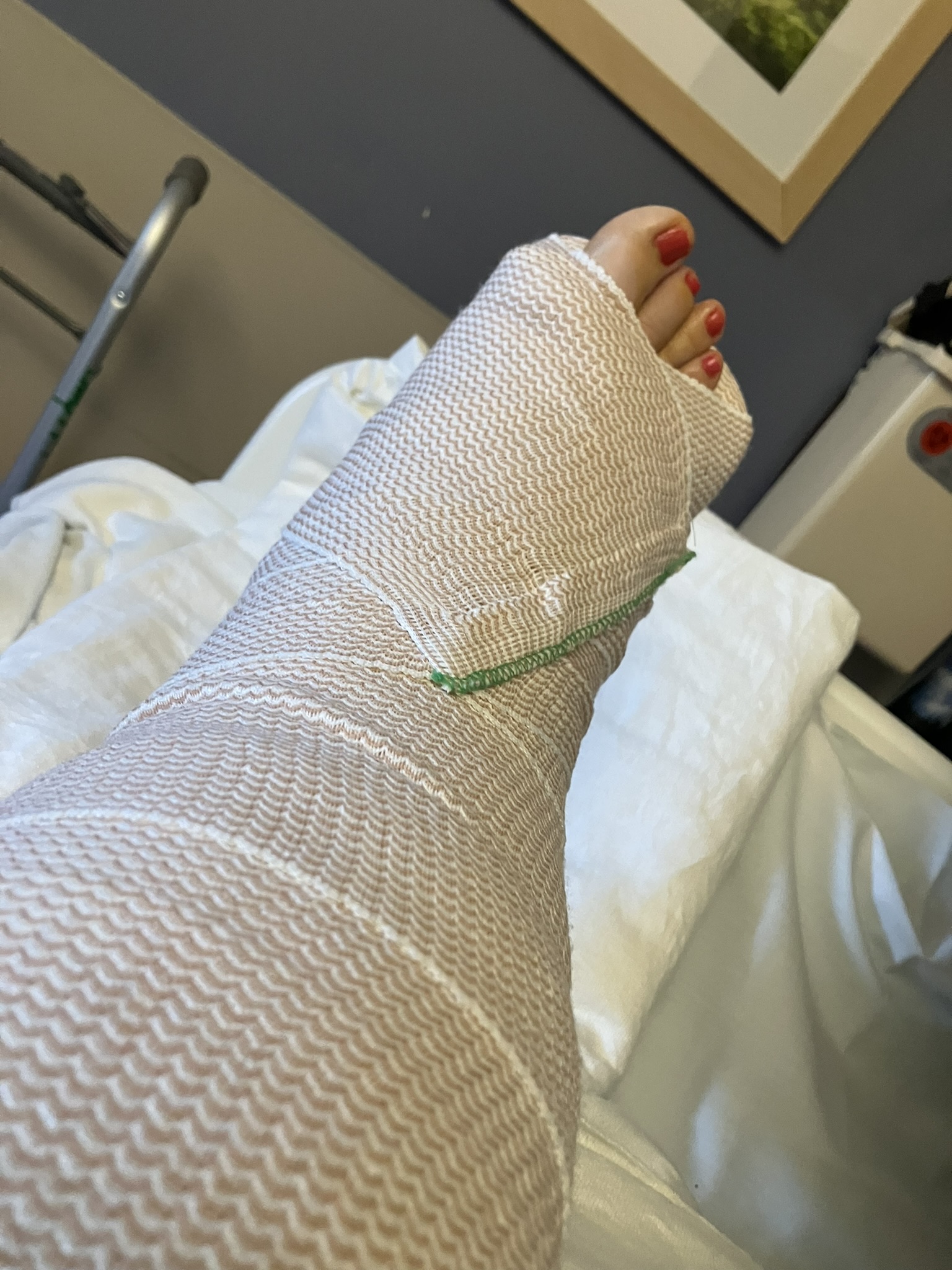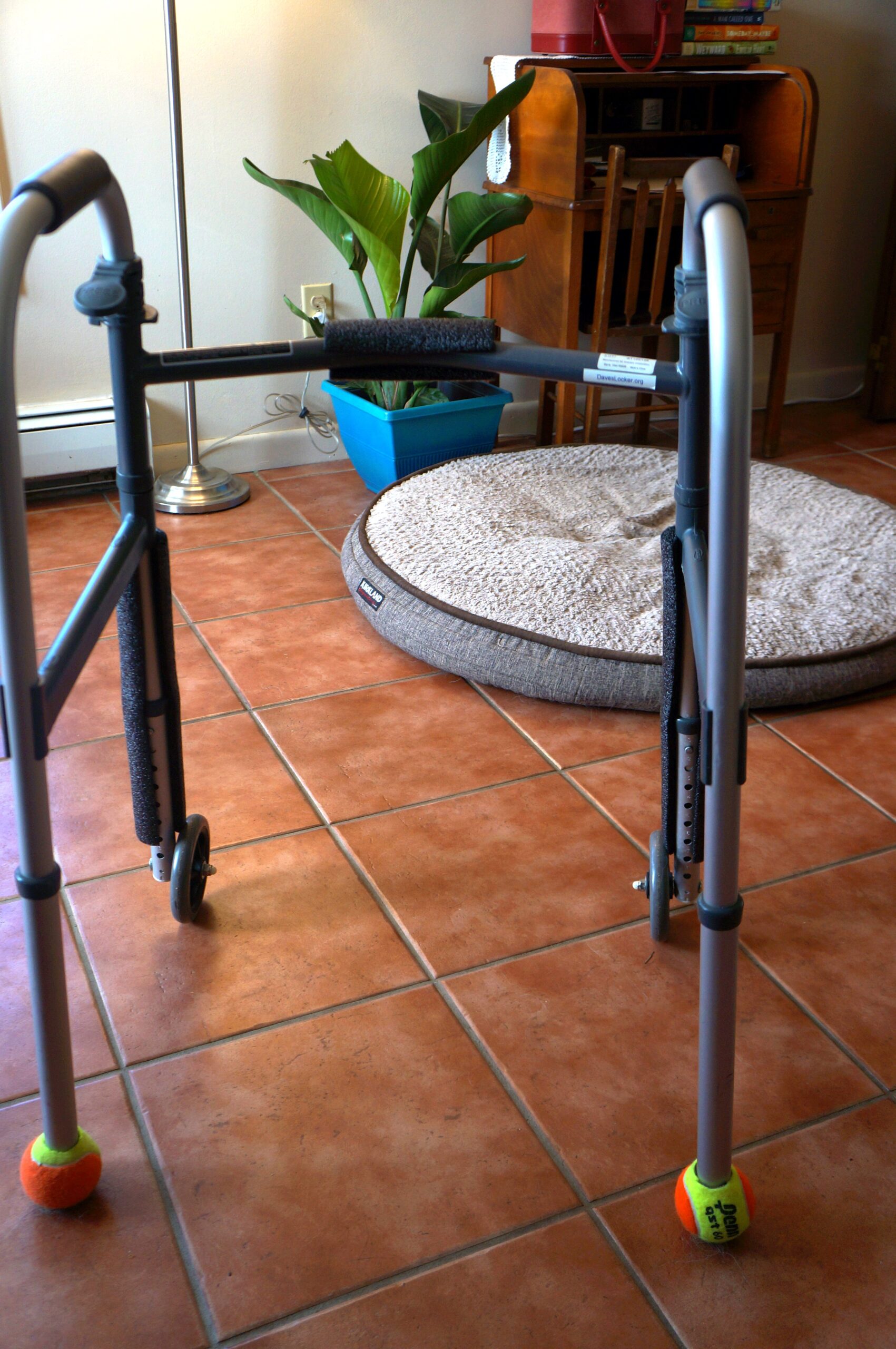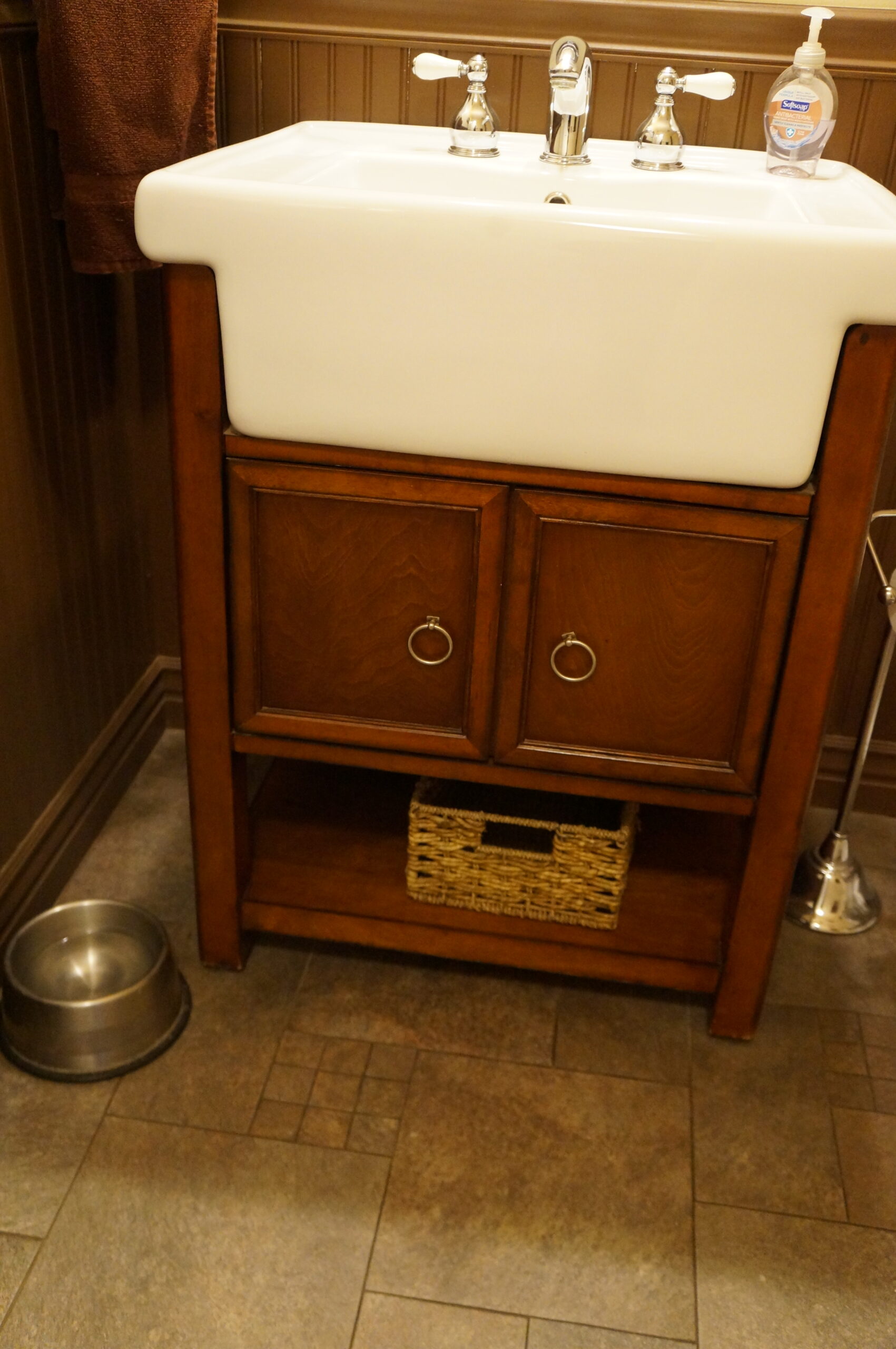I wish I didn't need to think about training dogs to be careful around crutches, but real life does its thing. I went through our dogs' repertoire of behaviors and found some that prove helpful to me since I have many weeks / months ahead of me on crutches. Here are some prior dog behaviors that pay off if / when you get hurt. Cute videos, including one of a tiny Clover learning "go to place." Don't miss it!
Dog Training - Go to Place
When all else fails, your dog's "go to place" cue helps a lot if you're on crutches because it can:
- Get dogs out of the way
- Give dogs a comfortable place to go
- Include a STAY duration that gives you time to maneuver around
Years go, I originally taught this dog trick or dog behavior via shaping. Here's baby CLOVER learning what we call "nest."
And, here is our youngest, Mr. Stix, doing the same behavior on cue as I come into my office.
Training Dogs to be Careful Around Crutches - Side Positions in Motion
Both for dog sports needs and just general safety in public such as on walks and hikes, I trained my dogs to change sides around me:
- SIDE means change sides in front of me.
- SWITCH means change sides behind me.
Dog Training - With Me
However, adding crutches into the mix eroded these established side-change dog behaviors, so instead I figured out that "With Me," which is sort of my not-quite-heel word, works pretty well as an option for training dogs to be careful around crutches.
Dog Training - Beep Beep
It's silly, but I often say "Beep Beep" or "Excuse me" to the dogs when I need to get around them (even before I ended up on crutches long term). It works though, and they either stop so that I can get around them or they step out of the way.
Training Dogs to be Careful Around Crutches - Other Stationary Positions & Off
Our dogs know how to put their front feet or their whole bodies on raised items, which helps with doing things while I'm still injured and face significant activity restrictions.
- Petting them
- Grooming / brushing them
- Loving on them
- Giving them something to do around me since I cannot do much with them
They also know OFF which is the word for them to dismount. So thankful, I taught them all this when they were younger.
Pardon the cluttered table. It's easier to keep things in arm's reach ... my "grab zone!" ... like vitamins in the morning and chips with lunch.
Dog Training - Going Outside & Coming Inside (recall)
This door allows me to let the dogs outside to the back yard and call them inside without having to navigate any stairs. Notice that I clap my hands as a recall cue. I kind of prefer that to hollering for them since sound carries in our mountain valley, and I'm sure the neighbors don't enjoy hearing me calling for our dogs.
But, also simply saying "Girls!" works as well. They were off barking at something and did not hear me clap initially.
Crutches Aren't Easy
I've never needed crutches, so using them long term is quite the challenge. I really have to be careful and concentrate, or it's easy to lose my balance. My one good leg cramps up from the strain. #charliehorse
I also learned yesterday that dog hair balls on the floor are a major hazard -- super slippery. My right crutch slid way out to the side, and I nearly fell again. Gah! So, try to keep your floors relatively clear of dog hair.
When I recover from this injury, I may still work on additional training dogs to be careful around crutches since it isn't easy to teach new things due to risk of wobbling or falling again.
What About a Walker?
That's what I used in the hospital, and it worked well. We did borrow one for (along with a shower) chair from this great FREE mobility aid resource in our county, but it's really slippery on our tile, and it's too big to fit through our doors. It's also weird to go up stairs backwards with a walker. It kind of freaks me out.
What About Knee Scooters?
Unfortunately, the 1978 design of our house with the main hallway raised (1 step up) means that I cannot use a knee scooter to get around. We may still borrow one from a neighbor and see if it's helpful to me in the kitchen, so stay tuned for that. I suspect the dogs may struggle with a scooter due to its noise over the tile floor.
One Last Tip
Even wearing a little backpack or holding small things in my mouth (toast!) or hands, I cannot carry much -- especially liquid things -- while on crutches, so I moved one of the dog water bowl from my office to the hall bathroom so that I can keep it filled while balancing myself against the sink.







I Love the way you are adapting. You are right, who would have thought all of the training you did when they were little would pay off. Such a good model for everyone to think about training these and other behaviors proactively bc you just never know when life is going to throw you a curve ball. You Go Girl!